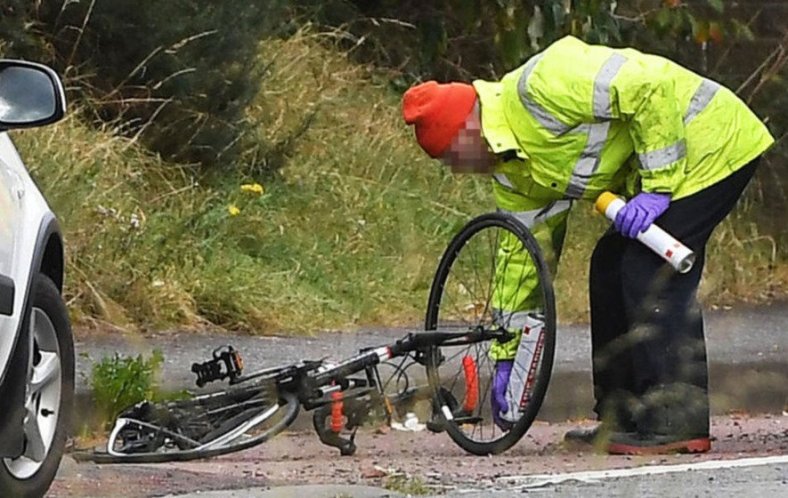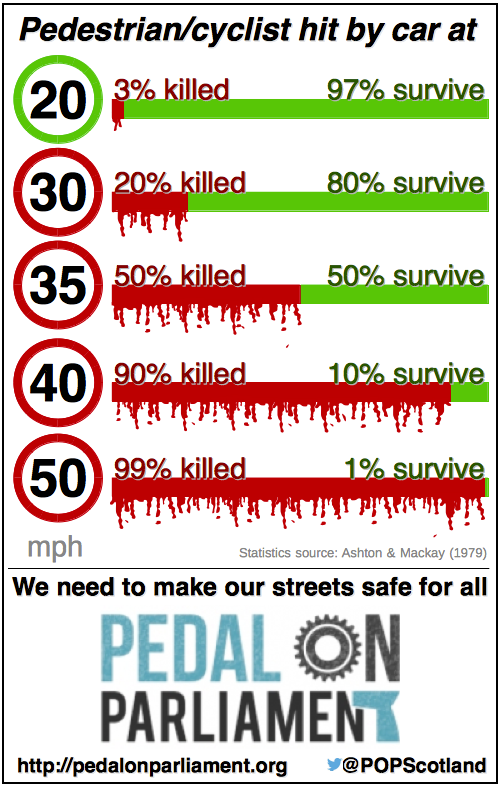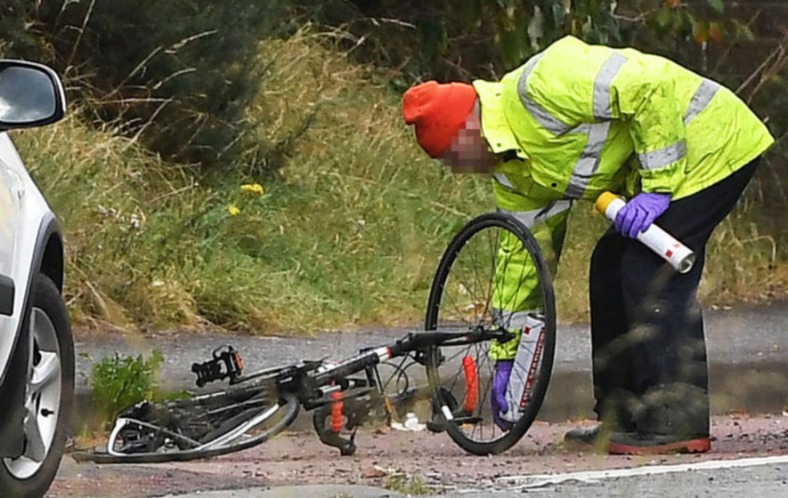I wrote about North Down’s poor road cycling safety record before. Summarising, 3 people out cycling were killed within one year, 2 on the same road. In my blog I presented a not very ambitious plan to improve safety for bicycle users along the A21.
Unsurprisingly, nothing has changed, other than the roll-out of the award-winning PSNI See The Cyclist campaign to North Down.
In the meantime 2 of the 3 drivers have appeared before court, both pleading guilty to the charge of causing death by careless driving. The sentencing of Lindsey Huddleston, who killed David Catherwood on the A2, was not reported.

David Catherwood (Irish News)
We now have more information on how father of five Stephen Lynch died.

Photo from Irish News
Mr Lynch was struck from behind at 50mph by Mr Lappin, driving a Renault Scenic, who failed to notice Mr Lynch ahead of him. Mr Lappin escapes jail, for which he would have got a maximum of 3 months and be out in 6 weeks. Instead he is to serve 100 hours community service.
For blowing his nose.
No, really, read the reports: he blew his nose and someone died.
So far a lot of the focus has been on the lack of a rear light on Mr Lynch’s bike. Or that he was not wearing high visibility gear. But then, if Mr Lappin was not otherwise engaged, he may have spotted the cyclist on the straight and well-lit road.
More likely, even if Mr Lynch had road legal lights and had a form of high visibility gear, Mr Lappin would still have gone into the back of him because Mr Lappin had his eyes closed. You try blowing your nose without closing your eyes.

Stephen Lynch (Belfast Live)
None of these discussions restore Mr Lynch to his family and friends. None of these thoughts will pacify Mr Lappin’s mind. He will carry the responsibility of taking someone else’s life. (And in this respect he too is a victim of not only his lapse, but also of poor design which allowed his lapse to have a catastrophic consequence.)
How can such a small lapse, such a small natural action, blowing one’s nose, lead to the death of another road user? It shouldn’t.
There are a few questions that need to be asked:
- Why was Mr Lynch cycling on a 70 mph section of dual carriageway;
- Why did the collision result in his death;
- Has it happened before;
- Can we learn anything, make changes, and prevent this happening again?
There are precious few alternatives to the route Mr Lynch took between Newtownards and Bangor.

All of these are dominated by cars and lack any kind of cycle infrastructure. In my previous post (linked at the start) I offer an idea what could be done quickly enough. And two fatalities should provide the incentive to put together a meaningful package of route improvements.
From the reports it becomes clear that Mr Lappin was travelling at 50mph, well within the 70mph limit. Also Mr Lynch was travelling at 10 to 20mph in the same direction, meaning the closing speed was between 30 and 40mph. The probability of surviving a collision at these speeds lies between 10 and 50%.

Pedal on Parliament
What this says is simply, a driver and cyclist should not be sharing any roads with a speed limit greater than 30mph.
Whilst blowing one’s nose appears to be a very uncommon cause of accidents, coughing and sneezing behind the wheel does appear to cause a significant number of collisions, once source calculates as many as 2500 collisions a week in the UK.
Google failed to find me any instances of an incident caused by nose blowing other than the present case. A number of drivers have been fined for blowing their nose whilst driving. And quite right too.
This collision could have been prevented. Mr Lynch could still be making his way to work and Mr Lappin would have cleared his nose and continued his day. For that we need to look at Sustainable Safety or “Duurzaam Veilig“. Two principles of Sustainable Safety are of particular relevance:
- Homogeneity – the mass, speed and direction of traffic using road space should be broadly similar. A kerb segregating the general traffic lane and a designated cycle lane would have separated Mr Lynch from cars coming up behind him;
- Forgiveness – that no one should die as a result of an error by themselves or another road user. You could think of installing rumble strips to alert inattentive drivers when they veer off course, or deflecting kerbs to ensure cars are pushed back into the road when the driver errs. Also, a soft verge could make the difference between a life and death.
In contrast to the Dutch, British and Irish authorities have a curative response to road safety. Something happens and they respond on that location, sometimes. Incidents or accident black spots are seen and dealt with in isolation.
A spate of collisions at the petrol station nearest to our home led to the speed limit being dropped from 50 to 40mph. A drop in the speed limit is to mitigate the consequence of a collision. It does not necessarily prevent future collisions happening.
Ideally, after any severe collision there should be an audit of all other similar locations across the country. Has there been an audit in Northern Ireland of all petrol station entrances and exits on 50mph roads in built up areas in Northern Ireland? Probably not.
In the rail or air transport sectors such industry-wide reviews are a matter of course. When a fault is reported entire fleets of aircraft are grounded and checked. This safety culture has meant that in 2017 no large passenger aircraft crashed at all, anywhere in the world.
If a dangerous roundabout is fixed with a new design or layout, that should be applied on all similar roundabouts. And new roundabouts must not be built including the same old faulty design.
More than that, Sustainable Safety should become part of UK and Irish road designers’ thinking so a route between, for instance, Newtownards and Bangor can be safely walked, cycled and driven.
I will not waste many words on the judge’s comments which boil down to if you kill a cyclist, it is just one of those things. Deplorable.
None of this will help Mr Lynch’s family and friends now. We should also extend our sympathy to Mr Lappin. Few of us know the anguish and guilt he must endure for inadvertently taking someone else’s life.
